International Women’s Day: top universities led by women
A quarter of the top 200 universities in the Times Higher Education World University Rankings are run by women, a number which is increasing year on year
Share
Analysis of the Times Higher Education World University Rankings 2024 reveals that 50 of the top 200 institutions are currently led by women. This is an increase from the 48 universities led by women last year and now amounts to a quarter of the top 200 universities in the world.
The current number one institution (the University of Oxford) is led by Irene Tracey, who took over from Louise Richardson in January 2023. Four of the prestigious Ivy League institutions in the US – Columbia University, Dartmouth College, Cornell University and Brown University – have female leaders.
There are two more female leaders in the job compared with last year, and 23 more than in 2015 when THE first started collecting the data, representing an 82 per cent increase over nine years.
Of the top 200 universities, 2.5 per cent (or 10 per cent of female-led institutions) are led by women of colour.
The Netherlands, the US, Germany and the UK are some of the countries with high numbers of female-led institutions.
Below, we take a look at the achievements of the female vice-chancellors of the top 10 universities and the journeys that brought them to where they are now.
1. University of Oxford, Irene Tracey
Neuroscientist Irene Tracey became vice-chancellor of the University of Oxford in 2023.
Tracey gained her undergraduate and postgraduate degrees in biochemistry at Merton College, Oxford, where her research focused on the early use of magnetic resonance imaging methods to study disease mechanisms in humans. After that, she held a postdoctoral position at Harvard Medical School.
Tracey returned to Oxford in 1997 and was a founding member of the Oxford Centre for Functional Magnetic Resonance Imaging of the Brain (now the Wellcome Centre for Integrative Neuroimaging). She then took up a tenured position in the department of physiology, anatomy and genetics at Christ Church College, later moving to the department of anaesthetics.
Tracey is still a professor of anaesthetic neuroscience in the Nuffield Department of Clinical Neurosciences.
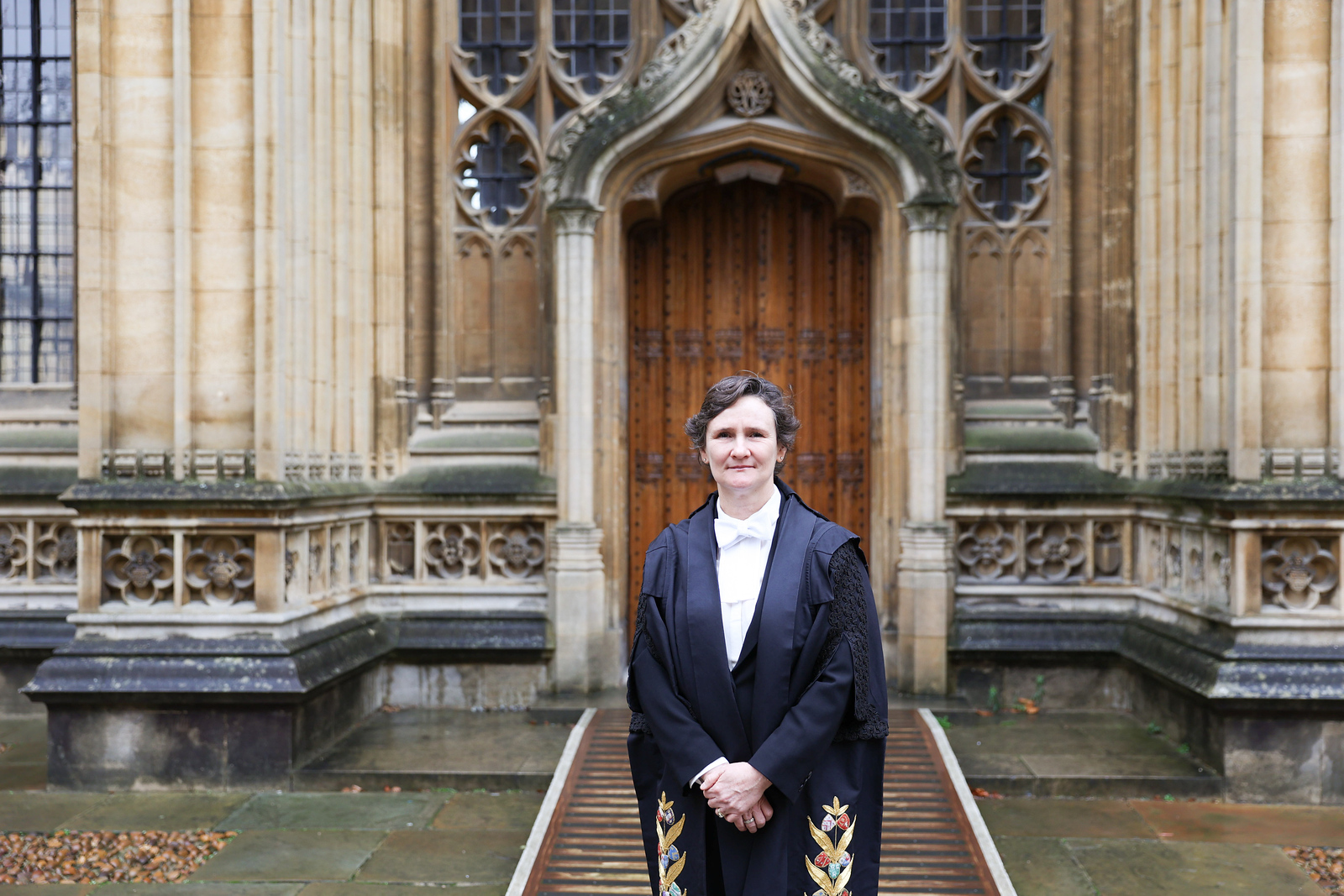
Credit - OUImages/Cyrus Mower
2. Massachusetts Institute of Technology, Sally Kornbluth
Sally Kornbluth became the 18th president of the Massachusetts Institute of Technology in January 2023. She is only the second female leader in MIT’s 162-year history.
Kornbluth’s academic background is in cell biology. She obtained a degree in political science from the University of Cambridge, and then pursued a PhD in molecular oncology at Rockefeller University.
She was previously professor of pharmacology and cancer biology at the Duke University School of Medicine.
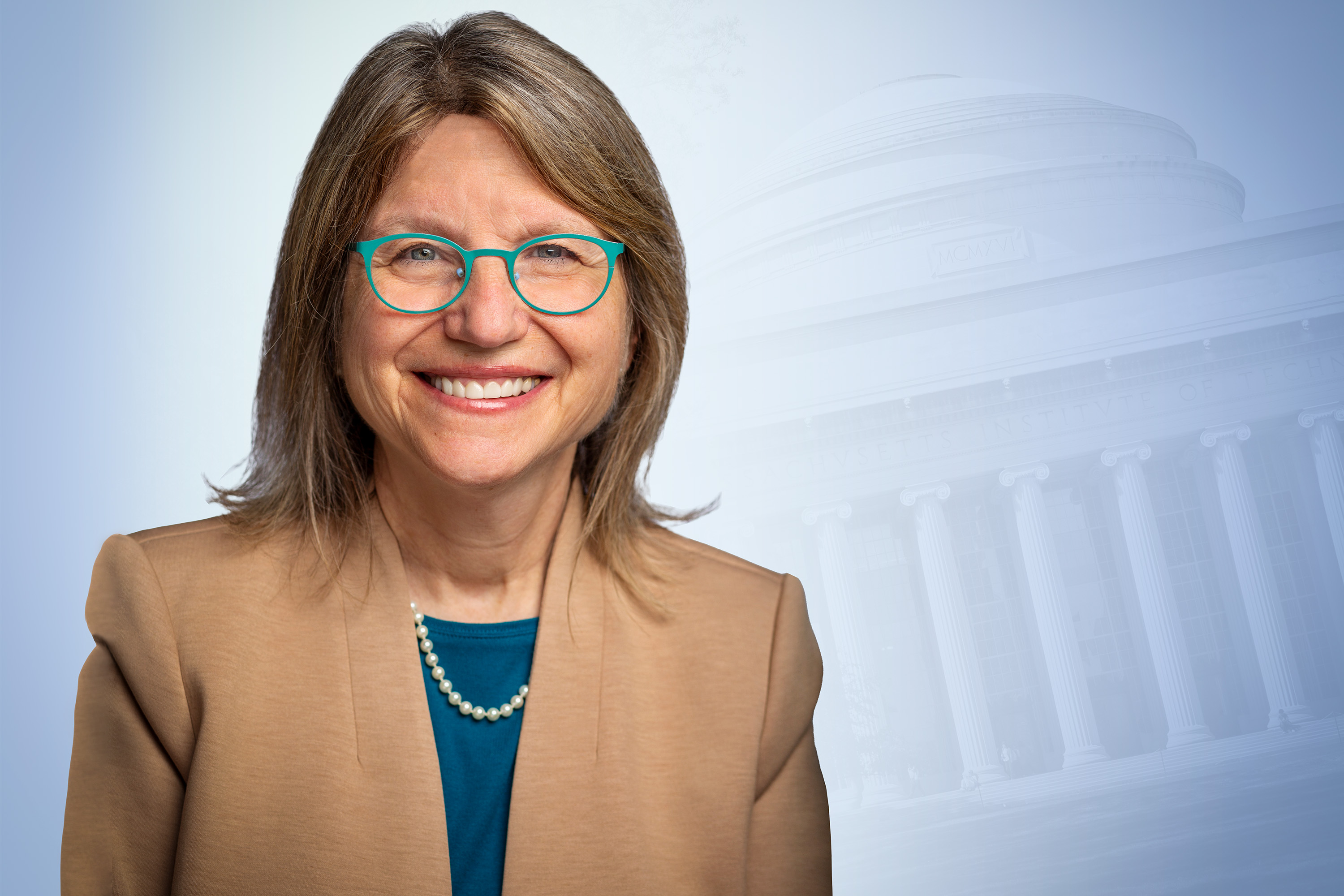
3. University of Cambridge, Deborah Prentice
Deborah Prentice took up the role of vice-chancellor of the University of Cambridge in July 2023.
Her academic background is in psychology, having studied human biology and music at Stanford University. She then progressed to pursue her graduate studies in psychology at Yale University, earning a PhD in 1989. Prentice’s research has focused on the study of social norms in human behaviour.
Prentice began her career at Princeton University as an assistant professor, eventually becoming dean of faculty.
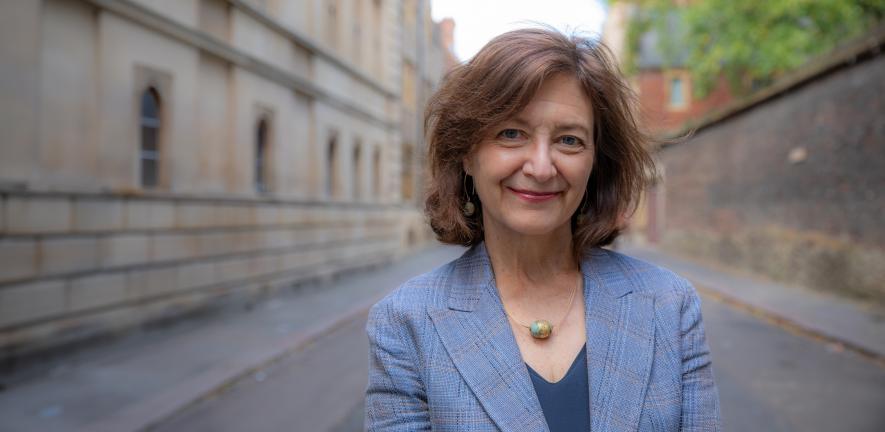
4. University of California, Berkeley, Carol Christ
Carol Christ is the first female chancellor of the University of California, Berkeley, having replaced Nicholas Dirks in July 2017. She served as Berkeley’s executive vice-chancellor and provost between 1994 and 2000. She then became president of the liberal arts institution Smith College for more than a decade, before returning to Berkeley. She is a celebrated scholar of Victorian literature.
Since taking on the presidential role at Berkeley, Christ has worked to target sexual violence and sexual harassment on campus and to create a long-term housing plan for students.
She will retire from this role at the end of June 2024.
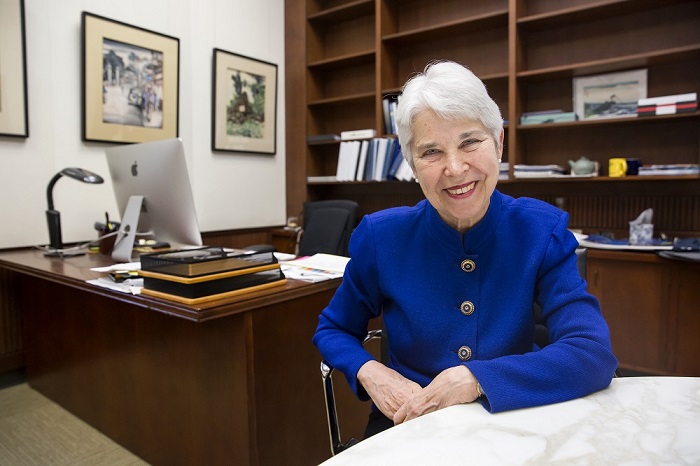
5. Columbia University, Minouche Shafik
An economist by background, Minouche Shafik has held a number of positions in international organisations and in government, including the World Bank and the UK’s Department for International Development. She has also held academic appointments at Georgetown University.
She was appointed Dame Commander of the Order of the British Empire in 2015, and was the previously the director of the London School of Economics and Political Science.
Shafik became the president of Columbia University in July 2023.
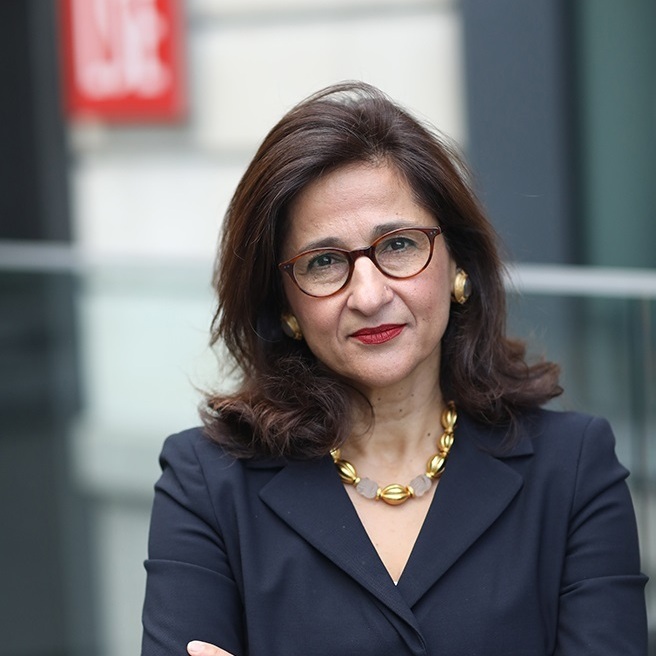
6. Cornell University, Martha E. Pollack
Previously provost of the University of Michigan, Martha E. Pollack was inaugurated as the 14th president of Cornell University in 2017.
Her research speciality is artificial intelligence, to which she has contributed work in planning, natural language processing and activity recognition for cognitive assistance.
While at the University of Michigan, Pollack received the Goddard Power Award for her efforts in increasing the representation of and support for women and under-represented minorities in science and engineering.
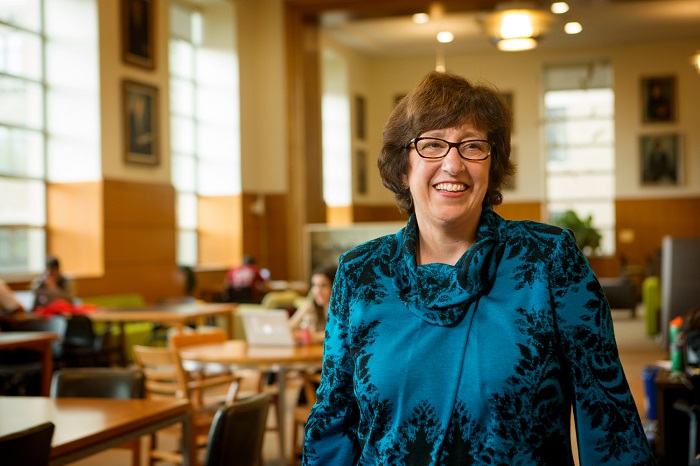
7. University of Washington, Ana Mari Cauce
Ana Mari Cauce is the University of Washington’s first female permanent president, as well as its first Latina leader.
A member of the University of Washington faculty since 1986, she became interim president in March 2015 and was appointed president in October 2015.
Cauce’s academic specialism is psychology, having gained an MSc in psychology and, in 1982, a master of philosophy from Yale University.
Cauce remains active in the classroom and continues to teach and mentor undergraduate and postgraduate students. She helped to establish the university’s Husky Promise, which guarantees full tuition to eligible Washington students who would otherwise be unable to attend college. She also launched the Race and Equity Initiative in 2015 to encourage staff and students to take personal responsibility for combating racism and inequality.
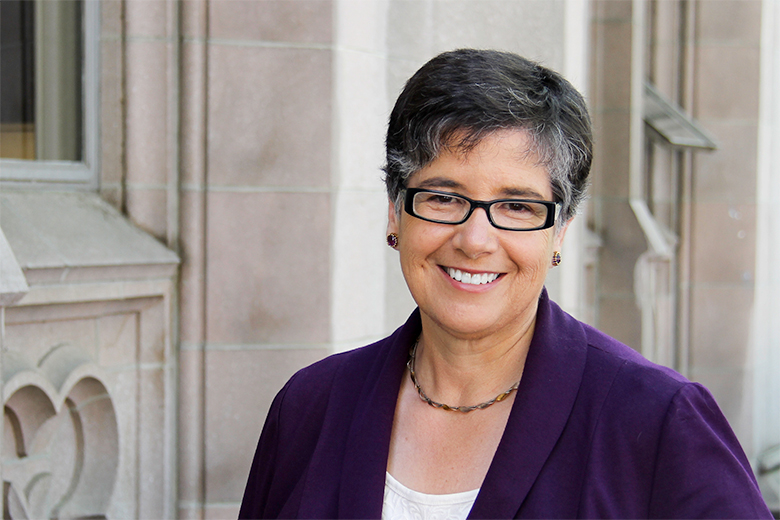
8. New York University, Linda G. Mills
Linda Mills became the 17th president of New York University in July 2023.
Mills gained a BA in history and social thought from the University of California, Irvine, a JD from the University of California College of the Law, San Francisco, a master’s in social work from San Francisco State University and a PhD in health policy from Brandeis University.
She first started working at NYU in 1999 as an associate professor in social work. She has since held numerous positions within the university.

9. Universität Heidelberg, Frauke Melchior
Frauke Melchior took up the position of rector of Universität Heidelberg in October 2023 and will remain in the role for the next six years.
Melchior is a scientist, having studied chemistry at the University of Marburg and the University of Bristol. She worked as a postdoctoral researcher at the Max Planck Institute for Biophysical Chemistry in Göttingen and at the Scripps Research Institute in La Jolla, California.
She then joined the Faculty of Biosciences at Universität Heidelberg in order to continue her research as professor for molecular biology at the ZMBH in 2008. As of April 2021, she transferred to Forschungszentrum Jülich, which is one of the research centres in the Helmholtz Association, as a member of the board of directors.
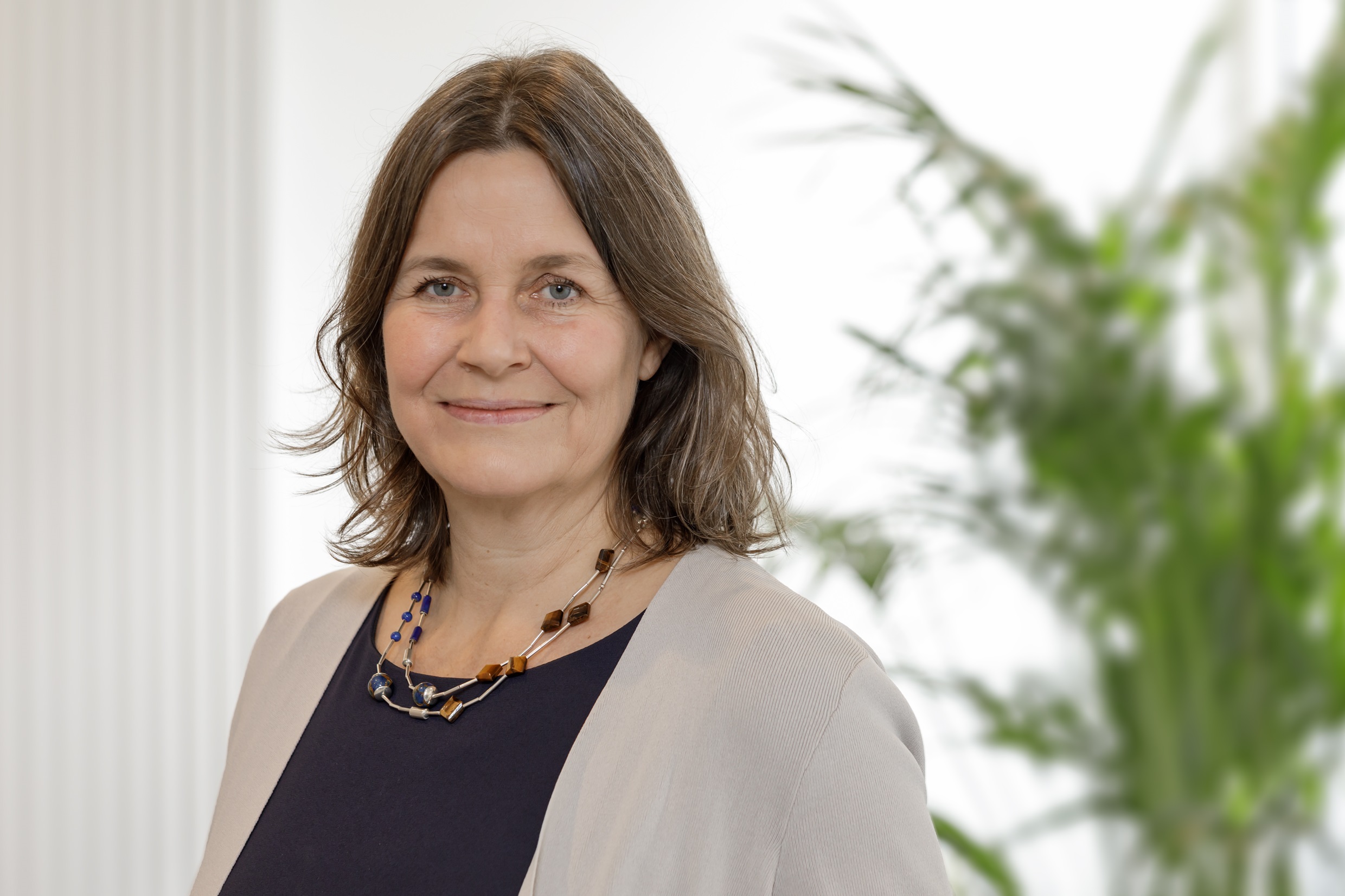
Credit: Forschungszentrum Jülich / Ralf-Uwe Limbach
10. Karolinska Institute, Annika Östman Wernerson
Annika Östman Wernerson arrived at the Karolinska Institute in 1991, where she completed her medical degree. Wernerson’s medical research focuses on patients with chronic kidney disease, and she has had numerous papers on the condition published in medical journals.
Wernerson has also taught a range of educational programmes at the Karolinska Institute since joining the faculty in 2011. She has also worked within the university’s hospital as a clinician and a consultant.
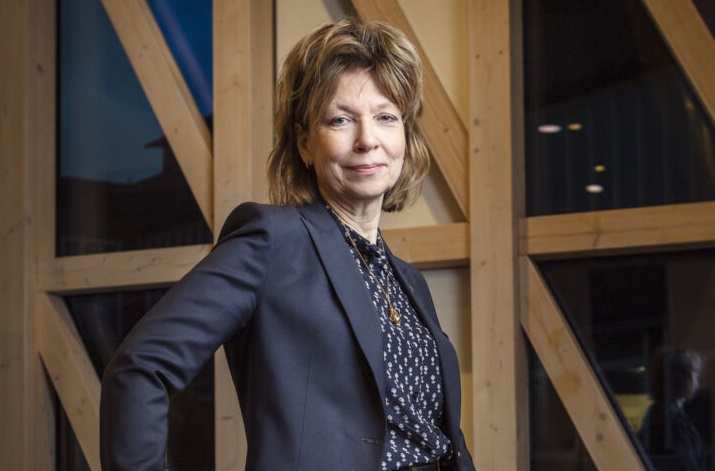
Top universities led by women in the THE World University Rankings top 200
Full analysis of the results can be found here: Quarter of world’s top 200 universities led by women
| Order | Position in World University Rankings 2024 | University | Country | Vice-chancellor |
| 1 | 1 | University of Oxford | United Kingdom | Irene Tracey |
| 2 | 3 | Massachusetts Institute of Technology | United States | Sally Kornbluth |
| 3 | 5 | University of Cambridge | United Kingdom | Deborah Prentice |
| 4 | 9 | University of California, Berkeley | United States | Carol Christ |
| 5 | 17 | Columbia University | United States | Minouche Shafik |
| 6 | 20 | Cornell University | United States | Martha Pollack |
| 7 | 25 | University of Washington | United States | Ana Mari Cauce |
| 8 | 27 | New York University | United States | Linda G. Mills |
| 9 | 47 | Universität Heidelberg | Germany | Frauke Melchior |
| 10 | 50 | Karolinska Institute | Sweden | Annika Östman Wernerson |
| 11 | 51 | University of Manchester | United Kingdom | Nancy Rothwell |
| 12 | 54 | Monash University | Australia | Sharon Pickering |
| 13 | 58 | Université Paris-Saclay | France | Estelle Iacona |
| 14 | 61 | University of Amsterdam | Netherlands | Geert ten Dam |
| 15 | 63 | University of Wisconsin-Madison | United States | Jennifer L. Mnookin |
| =16 | =64 | Brown University | United States | Christina Paxson |
| =16 | =64 | The Hong Kong University of Science and Technology | Hong Kong | Nancy Y. Ip |
| =16 | =64 | Wageningen University & Research | Netherlands | Sjoukje Heimovaara |
| 19 | 67 | Australian National University | Australia | Genevieve Bell |
| 20 | 70 | The University of Queensland | Australia | Deborah Terry |
| 21 | 74 | University of Southern California | United States | Carol Folt |
| 22 | 75 | Sorbonne University | France | Nathalie Drach-Temam |
| 23 | 77 | Leiden University | Netherlands | Annetje Ottow |
| 24 | 81 | University of Bristol | United Kingdom | Evelyn Welch |
| 25 | =87 | Humboldt University of Berlin | Germany | Julia von Blumenthal |
| 26 | =95 | University of Tübingen | Germany | Karla Pollmann |
| 27 | =116 | Michigan State University | United States | Teresa K. Woodruff |
| 28 | 121 | University of Helsinki | Finland | Sari Lindblom |
| 29 | 122 | Penn State (Main campus) | United States | Neeli Bendapudi |
| 30 | =123 | University of Basel | Switzerland | Andrea Schenker-Wicki |
| 31 | 125 | Vrije Universiteit Amsterdam | Netherlands | Margrethe Jonkman |
| 32 | 128 | University of Freiburg | Germany | Kerstin Krieglstein |
| 33 | =130 | University of Nottingham | United Kingdom | Shearer West |
| 34 | 133 | University of Rochester | United States | Sarah C. Mangelsdorf |
| 35 | 134 | Trinity College Dublin | Ireland | Linda Doyle |
| 36 | =136 | Technical University of Berlin | Germany | Geraldine Rauch |
| 37 | =138 | Maastricht University | Netherlands | Rianne Letschert |
| 38 | =140 | Radboud University Nijmegen | Netherlands | Jose Sanders |
| 39 | =145 | University of Pittsburgh-Pittsburgh campus | United States | Joan T. A. Gabel |
| 40 | =150 | University of Auckland | New Zealand | Dawn Freshwater |
| =41 | =161 | Dartmouth College | United States | Sian Beilock |
| =41 | =161 | TU Dresden | Germany | Ursula M. Staudinger |
| 43 | 174 | Durham University | United Kingdom | Karen O’Brien |
| 44 | =177 | University of Exeter | United Kingdom | Lisa O. Roberts |
| 45 | 181 | Sapienza University of Rome | Italy | Antonella Polimeni |
| 46 | =185 | Stockholm University | Sweden | Astrid Söderbergh Widding |
| 47 | 190 | Cardiff University | United Kingdom | Wendy Larner |
| 48 | =193 | University of St Andrews | United Kingdom | Sally Mapstone |
| 49 | 198 | Indiana University | United States | Pamela Whitten |
| 50 | =199 | Queensland University of Technology | Australia | Margaret Sheil |
Note: Data correct as of 1 February 2024 and includes acting presidents and vice-chancellors.
